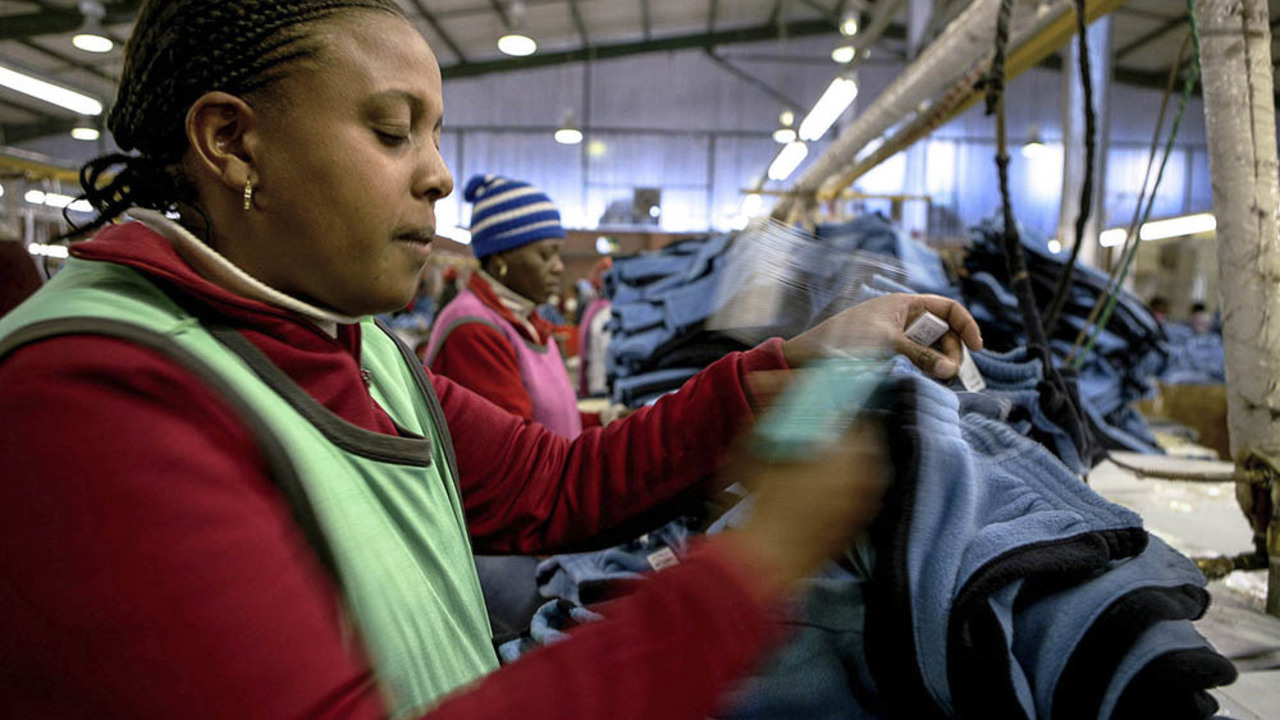- $1.2bn Worth of Textile Materials Smuggled into Nigeria Annually
Despite the depreciation of the value of the naira and the anti-smuggling operation by the Nigeria Custom Service (NCS), checks revealed an influx of imported ready-to-wear garments taking the value of smuggled apparel to a whopping $1.2 billion annually.
Stakeholders have blamed Nigeria’s porous land borders for the menace while manufacturers insist government failure to tackle the problem was responsible.
Also, there are concerns around the recent signing of the pact forming the African Continental Free Trade Area (AfCFTA) in Kigali.
Stakeholders within Nigeria’s textile, apparel and footwear industry opine that if the Federal Government of Nigeria (FGN) signs this agreement, it would have an adverse effect as it could accelerate the importation of cheaper imported textiles and garments.
However, analysts at FBN Quest have noted that the textile, apparel and footwear sub-sector remains the second largest contributor to Nigeria’s manufacturing (after food, beverage and tobacco).
“The sub-sector posted total output of N383bn ($1.3 billion) in Q4 2017 or 23.3 per cent of manufacturing gross domestic (GDP). The segment grew by 1.6 per cent year-on-year (y/y) in the fourth quarter of2017, compared with 1.1 per cent recorded in the corresponding period of the previous year. Given Nigeria’s huge appetite for fashion and related industries, the segment is still performing well below its full potential.
“Industry sources suggest that the country’s annual import bill for textiles and ready-to-wear apparel is $4 billion. Meanwhile, trade statistics from the National Bureau of Statistics (NBS) tell a different story, with imports of textile and clothing items of N37 billion ($121 million) in the fourth quarter, “said FBN Quest.
On what the federal government should do to stop the menace, the analysts stated: “We understand that the FGN has kicked off the creation of special economic zones (SEZs), starting with a zone for garment manufacturing. On a macro level, this should attract investment within the sector, boost output and assist with easing pressure on the job market.”
However, the NCS have blamed ignorance on the part of residents of border communities across the country for increasing smuggling of arms and contrabands.
The Controller, Federal Operations Unit, Zone ‘A’ of the Nigeria Customs Service (NCS), Comptroller Mohammed Uba stated this in a chat with THISDAY
He said that residents see smuggling as legitimate business and this remains one of the major challenges faced by the Unit in its efforts to curtail illegal border trades and other forms of smuggling.
He said the lack of knowledge is the reason why people see customs officials as enemies and sometimes attack them while they are carrying out their legitimate duties.
He however vowed that this will not deter the unit from performing its statutory responsibility of curbing smuggling.
While making reference to section 147 of the Customs and Excise Management Act (CEMA), Uba said the law empowers Customs to search any warehouse where there is reasonable suspicion that prohibited goods are kept there.
He called on the media to support the Service in the fight against smuggling by educating and enlightening the public on the dangers of smuggling.
“It is because of ignorance people living in the border communities feel and believes smuggling is a legitimate business. Customs is a constituted authority by the government but to our surprise, the whole community will just come and be attacking us. Because we collect tax, people see us as enemies.
“It is the media and some individuals who understand that smuggling is dangerous. So we must continue to educate ourselves and that is why we are soliciting the support of the media to educate people that smuggling is injurious to the economy.
“I have also been talking to my colleagues at the borders by advising them on customs community relation activity. We advise them and they set up such communities and advise them on what to do.
“Smuggling is a war not only for customs but all of us. For example, look at the issue of rice. What is the point bringing in rice when we can locally produce this rice or bring them through the port, this are some of the issues we are facing but that will not deter us from doing our work,” he said.

 Billionaire Watch3 weeks ago
Billionaire Watch3 weeks ago
 Startups4 weeks ago
Startups4 weeks ago
 News4 weeks ago
News4 weeks ago
 News4 weeks ago
News4 weeks ago
 Bitcoin4 weeks ago
Bitcoin4 weeks ago
 Naira4 weeks ago
Naira4 weeks ago
 Forex3 weeks ago
Forex3 weeks ago
 Treasury Bills4 weeks ago
Treasury Bills4 weeks ago

























